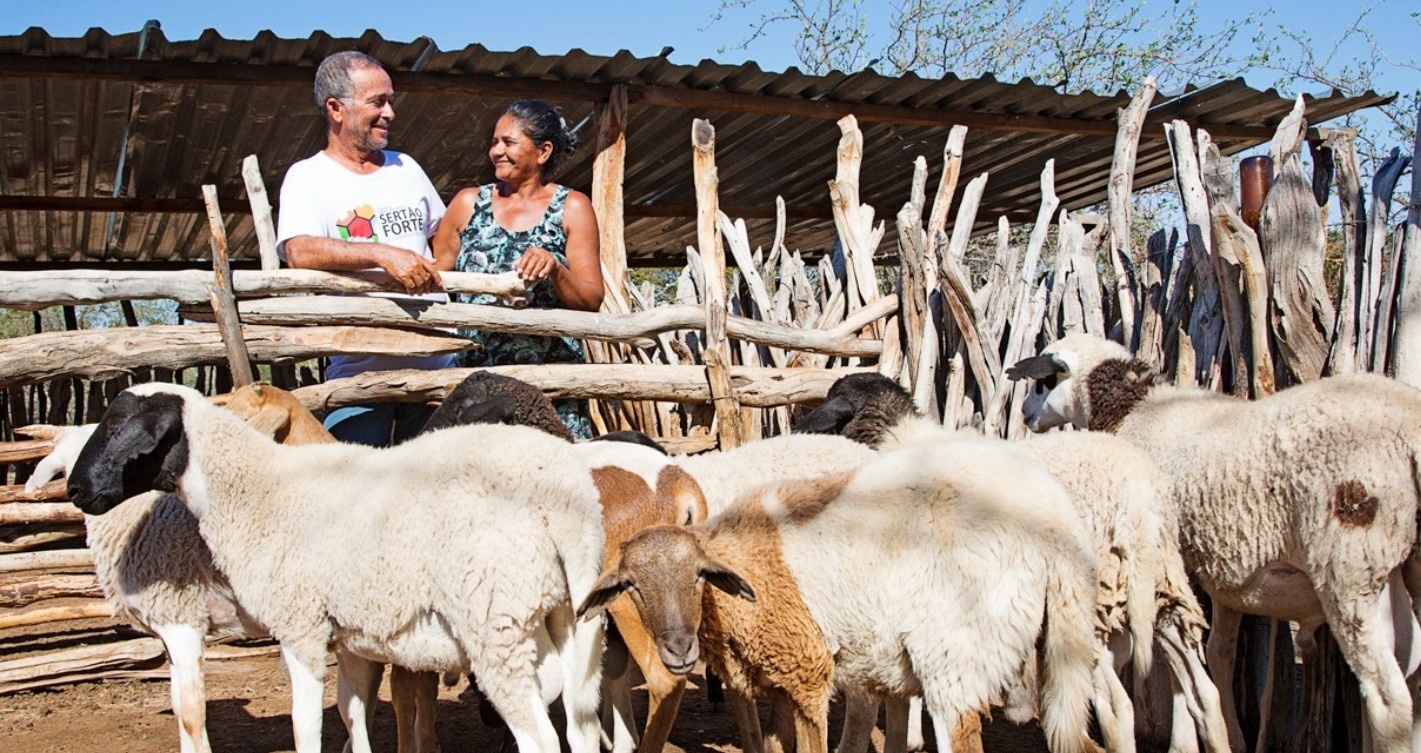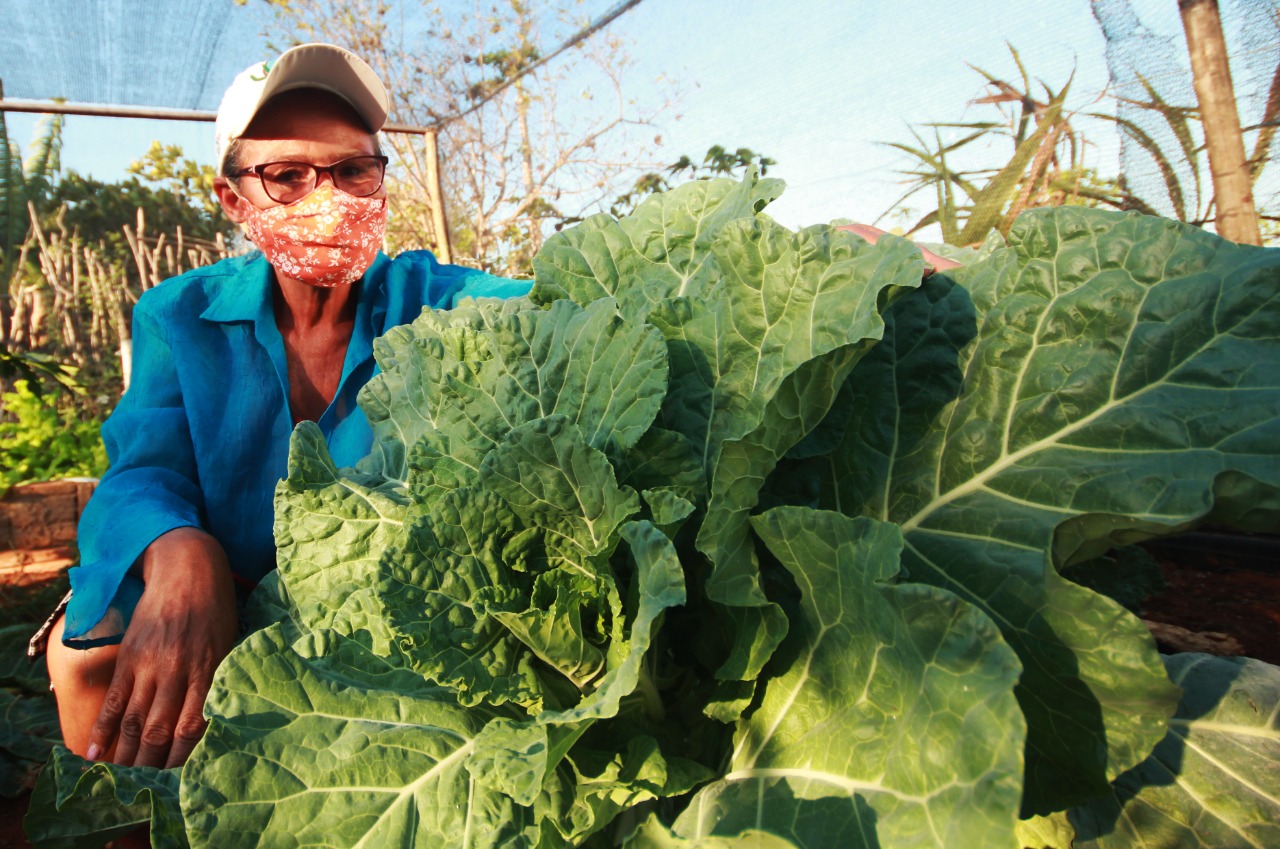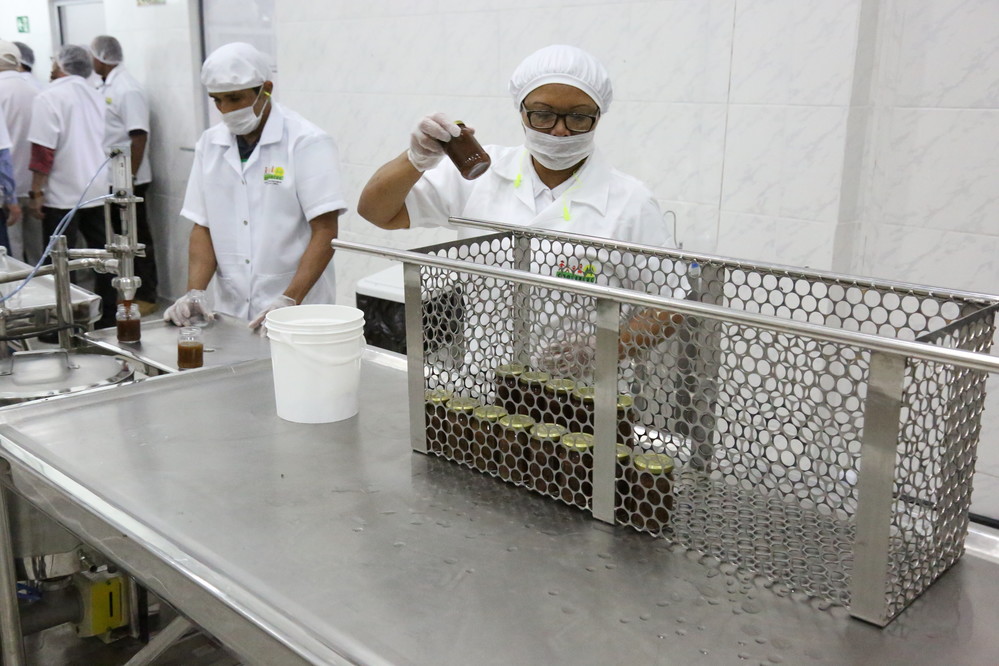Grass funds: Tradition meets ingenuity in Brazil’s sertão
IFAD Asset Request Portlet
ناشر الأصول
الصناديق العشبية: التقاليد تلتقي بالبراعة في سيرتاو البرازيلية
المقدر للقراءة دقيقة 8Brazil’s sertão, or semi-arid region, is a land rich in stories, music, and enchanting, otherworldly landscapes. The harsh climate makes it difficult to make a living here, but the region’s inhabitants see each other through with traditions of solidarity and reciprocity hundreds of years in the making.
Among these traditions are the grass funds (fundo de pasto, in Portuguese) of Bahia State, a set of customs dating back to the 16th century. Under this system, each family has their own portion of land that contains their home, some subsistence crops, and the housing for the goats and sheep that form the basis of most people’s livelihoods.
The nearby bush forests serve as communal lands, where the animals can wander and graze freely and families can enjoy the use of common resources. The bushes are turned into animal fodder and firewood, and their flowers are used in the production of honey, jams, juices, and liqueurs. Many of the herbs found in these areas are used in medicines and cosmetics. Native fruits like the umbú and licuri are harvested for their nutritive value as well.

©Manuela Cavadas
Fundo de pasto communities therefore have a high productive capacity and great potential for income-generating activities. Day-to-day subsistence is rarely an issue, either. Sadly, a lack of resources means that potential too often goes untapped, and financial profit remains elusive.
The problem is that many assume these communities are relics of the past. Indeed, the forces of modernization have posed a significant threat to them in recent years: Many former residents of the sertão, especially younger people, have migrated to Brazil’s vibrant urban centres in search of job opportunities and milder climates. Meanwhile, the communal lands have become a precious target for mining, wind farming, and large agribusiness companies.
Of course, as experts know and as studies have shown, these assumptions aren’t true. As rural sociologist Sergio Sauer says, “The idea of traditional community is not opposed to the notion of progress and development.”

©Eduardo Rodrigues/ PSA
Securing the land to bolster tradition
Efforts like the Pro-Semiarid Project (PSA), funded by IFAD and implemented by Bahia State’s Secretary of Rural Development and other development organizations, have been a crucial part of the effort to help these communities figure out the changes that will ensure their continuity.
One of the biggest possible steps forward for these communities is official land recognition. Despite having lived on their lands for decades, they often do not have ownership documents, making their right to access and use the land tenuous at best (from a bureaucratic standpoint). This not only represents a threat to their food security, it leaves them vulnerable to the mining companies that are already exploring the area.
Thus, part of PSA’s efforts have involved helping fundo de pasto communities achieve formal land recognition. Over the last few years, more than 2,000 of these communities have been inscribed in Bahia State’s Rural Property Register (CEFIR).
“For a long time we have waited for land recognition,” says Alcides Peixinho, a farmer from the Ouricuri community. “Now that we have a property certificate, our livelihoods are secured.”
Meanwhile, PSA has helped communities establish and strengthen local associations. They also provided technical assistance designed to improve productivity by, among many other things, reducing animal mortality.
A key part of this latter effort is the recaatingamento – the replenishment of native forest. “This has changed our lives, because we now have more flowers and bushes providing food,” says Leandro Alves of the Sento Sé community.
Creating opportunities for youth – and the whole community
Another important problem for these communities is migration. Youth tend to leave the area for university or work and then remain in the cities. As time passes, it’s mostly the older generations keeping the fundo de pasto systems alive.
“We have to think of a different way of managing things so that youth can stay here without sacrifice,” says Rosália Mendes, of Oliveira dos Brejinhos.
“It’s not about changing our way of life; it’s about changing things within this way of life,” adds Eduardo Martins, of the same community.

One example of this is the Family Agribusiness Cooperative of Canudos, Uauá and Curaçá (COOPERCUC), founded in 2003 by fundo de pasto communities. Today, the cooperative has 280 members – 70 per cent of them women – representing 18 communities.
Thanks to the organic and Fair Trade certifications it’s obtained, as well as its partnerships with organizations like Slow Food and companies like L’Occitane en Provence, its products are available across the world and its annual sales exceed US$280,000.
The cooperative is chaired by Denise dos Santos, a 31-year-old graduate whose parents were founding members of the cooperative. After completing her degree in business administration, she returned to Uauá because she wanted to give something back to her community.
Its central processing plant in Uauá, built with the support of PSA, has the capacity to process 500 kg of fruit every day. This allows them to market new products such as fruit-based ice cream and popsicles – in high demand in Brazil’s hot coastal cities.
They’re also reviving traditional foods like those made from wild-growing flowers – traditions that are sometimes forgotten even by the communities themselves – and introducing them to new audiences.
“We were told we were mad when we started using our local products to produce jams, juices and even beer,” Denise says. “See where this madness has taken us!” she says with well-earned pride.
The success of COOPERCUC demonstrates that traditional ingenuity, when properly combined with modern tools, can ensure that family farmers will not only achieve subsistence, but thrive.
Learn more about IFAD’s work in Brazil.
تاريخ النشر: 15 يونيو 2021